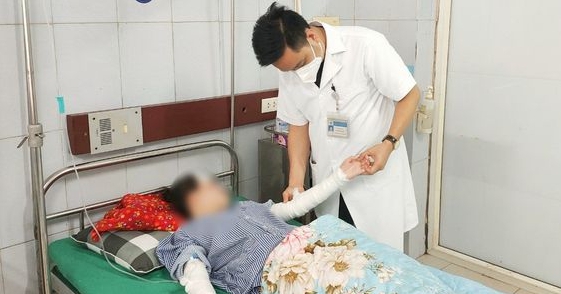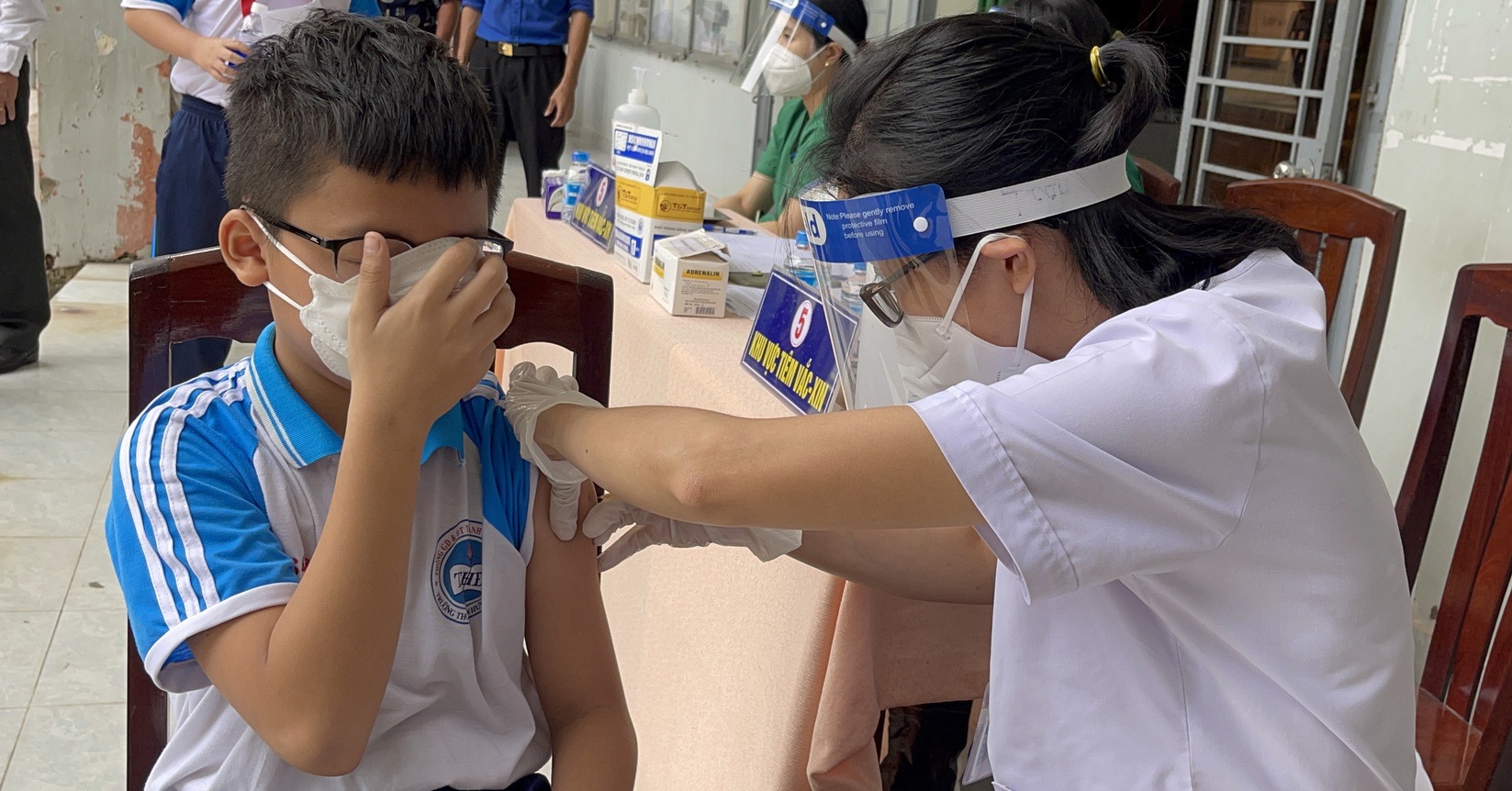Hanoi“Help me,” the woman’s pleading voice called the Peace House hotline, amid the city’s lockdown under Directive 16.
It was around 9am on August 13, Le Thi Nguyet took her two children running away from home, hiding in an abandoned house in a suburban district of Hanoi after being beaten by her abusive husband. He found the hotline number 1900 96 96 80, asking for help.
At almost 2 p.m., the mother and daughter arrived at the House of Peace, belonging to the Women’s and Development Center, Vietnam Women’s Union. Nguyet’s entire body was covered in bruises from sticks, punches and kicks, panicking. Two girls aged 4 and 8 years dirty and hungry.
According to Ms. Duong Thi Ngoc Linh, director of the center, parents and children come to seek shelter when they “have nothing with them”. The identity papers were torn up by the husband. The woman in her mid forties said she had been abused by her husband for more than 10 years. Due to Covid-19, it is forbidden to go out, the beating is getting heavier.
Nguyet is just one of thousands of women who have come to Peace Houses across Vietnam during the two years of Covid-19. In the first six months of 2021, Call Centers received more than 1,300 calls, a 140% increase compared to 2020, where more than 1,000 women reported violence. In Hanoi, in the past half year, the Peace House has treated 74 people, an increase of 120% over the same period in 2020. During the last 4 epidemics, the number of women in the southern provinces who asked for help accounted for 30% of the total national calls.

Nguyet (right) sews masks to earn an income during her stay at the Vietnam Women’s Union shelter in October Photo: Update spirituality
When he first arrived at the Peace House in Can Tho in early May, Hoang Thi May was panicky, sleep deprived, often squatting in the corner, sometimes shivering, in her mind the image of “her husband suddenly using a stick” hitting, using a knife”.
Cloud is in his twenties, coming from the central province. He married through an arranged marriage after three months of finding out. The first two years of marriage were normal because her husband went to work abroad. At the end of 2020, he returned when his business failed, such as changing into someone else, drinking, playing cards, managing money, tightening up his wife’s conversation with her grandmother’s family. “Once he beat me and then took a video and sent it to my mother. He threatened to kill me if I dared go back to my grandmother or dared to say two words divorced,” May said.
One day in late April, her husband came home from drinking for no reason, cursed and then beat her with a wooden stick for half an hour. After the battle, he planned to flee to his brother’s house in Binh Duong. But fearing that her husband would come and cause trouble, she fled to a shelter.
Unlike previous global public health and financial crises, Covid-19 has severely harmed women and exposed gender biases in economics and social structures. epidemic has forced the government to introduce unprecedented extreme social distancing measures, increasing household duties and caregiving responsibilities that have placed more of a burden on women than men. Loss of jobs and income, along with increased livelihood-related anxiety and fears about the virus, are also increasing stress on households.
“Within 15 months, Covid-19 could reverse fragile achievements in gender equality, worldwide and in Vietnam,” the United Nations Women’s Gender Equality Overview Report Nation in Vietnam announced on October 27.
Usually, home is the safest and most peaceful place. But for victims of violence, when the door is closed, the house is like a street without lights, danger lurks but it is difficult to make a sound. Lockdowns make it harder to escape abuse. Not only that, it also changes the way the perpetrator manipulates the victim.
In a study by the Institute for Social Development Studies (ISDS) and the University of Public Health conducted on 303 women who experienced violence in Hanoi in September 2020, 84% of women said controlling behavior was more prevalent during this time; 72% of women report more economic violence; 91% reported more emotional abuse; 93% reported a higher frequency of physical violence, of which 56% experienced physical violence more than 5 times; 79% reported more sexual harassment during the epidemic.
“While eating rice, he hit his face with a bowl,” Than, a victim of violence in Phuc Tho, a suburban district of Hanoi, told ISDS research.
This 40 year old woman is a garment worker, her husband is an electrician. The outbreak caused both of them to lose their jobs and have no income. Than has to support her 3 children and husband from the vegetable garden. In a situation of poverty, his youngest son fell ill again, causing him to borrow large sums of money for treatment.
But the husband gambles, gets drunk, often comes home forcing his wife to give money, beats and scolds children. In just a few months of the 2020 pandemic, Ms beaten by her husband 5 times, until I had to stay at the pharmacy.
At the peak, one day the husband forced him to borrow money and could not afford to burn his wife and children. “It was around 10pm, I woke up and opened the locked door. He spread clothes and blankets around the house and poured petrol over them,” Ms Than said.
at Blogtuan.info – Source: vnexpress.net – Read the original article here



